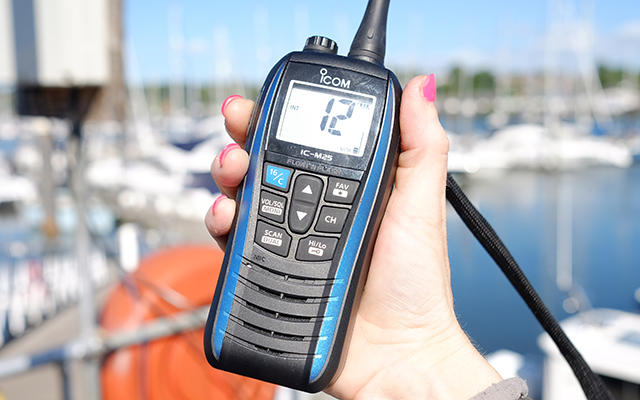Living is simple in the summer, and being able to talk to people you trust when you’re out on the water will help keep your days safe and worry-free. When it comes to selecting the best marine radio for your needs, you have many options and a lot of questions to answer. A marine radio is an essential piece of safety equipment for every boat. Do you want a proper mount radio, or will a handheld model be a superior decision? How crucial is GPS? Can marine radios withstand water? Luckily, our group is here to show you your choices with regards to radio styles and elements, and to assist you with deciding the best marine radio for you.
What kinds of marine radios are there?
The two main categories of marine radios are: handheld and fixed mount. A decent mount radio incorporates a base station with a screen and a different corded receiver. This kind of radio is wired directly to the distribution circuit or battery of your boat. It should be mounted in a spot where it is easy to get to and where you can easily see the screen but doesn’t block your view of other systems. An antenna is also required for your fixed marine radio, and it should be mounted as high as possible, away from electrical devices; For VHF antennas and other items, visit our marine accessories section.
A handheld marine radio is a single unit that resembles a walkie-talkie in appearance. It uses the VHF band, just like a mounted radio, but it has an integrated antenna.
The style of marine radio you need will depend on your boat, where you are, and other factors. Mounted radios cannot be moved around the boat and require more power; they likewise need a different recieving wire for compelling significant distance correspondence. When introduced accurately, in any case, a decent mount radio has fantastic reach – fundamental in a crisis circumstance in the vast water. Despite their portability, handheld radios have a battery that must be charged and may not be able to transmit a signal as far as fixed-mount radios. Having said that, carrying a handheld radio can save your life. If your radio falls into the water without you, you can still use it by looking for one that can float and resist water damage. This kind of radio doesn’t need power from your boat’s battery, and it can use GPS and Digital Selective Calling (DSC) to find you more precisely if you’re separated from your boat.
Can marine radios withstand water?
Waterproof and fully submersible, all Cobra marine radios are available. Even though installing a fixed-mount marine radio in a dry area is a good idea, these radios will still function when submerged. Our floating handheld marine radios also make it easy to locate them if they get lost in the water.
What is the range of a marine radio?
Because VHF signals travel in a straight line, a marine radio’s transmitting range is determined by its power, as well as the length, height, gain, and tuning of its antennas. On mounted marine radios, transmit powers up to 25 watts are permitted, which corresponds to a range of 20 to 80 miles, depending on the type of boat, the location of the antenna, and the receiver (another boat or a well-equipped shore station). A 5-watt handheld marine radio can transmit 7 miles to another handheld radio or 20 miles to a well-equipped shore station.
Check out this study guide from the RadioRed if you want to learn more about marine communications.
Is a VHF marine radio license required of me?
The FCC states that a VHF marine radio license is not required to use a radio on a recreational or pleasure boat in the United States. In the event that your radio has DSC capacity – which all Cobra marine radios give – you should get an oceanic versatile help personality (MMSI) number and program it into your radio before you send utilizing this assistance. DSC works like a “mayday” button, consequently communicating a pain call with your area (on the off chance that you’re utilizing GPS) to local vessels.
Click here – What Is Gran Lungo Nespresso?
Can a marine radio be used on land?
Although any VHF marine radio is capable of transmitting to a shore station that is well-equipped, they cannot be used on land without a ship station license and a license for a marine utility station. When communicating with an offshore vessel, the FCC does allow the limited use of marine radios on land near areas of boating activity.
